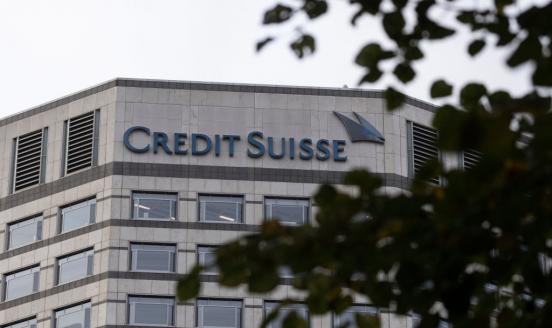A five-step guide to European banking union
Eurozone leaders have decided to create a banking union to help break the vicious circle between banking fragility and state insolvency. This is a bold move and an adequate response to the growing financial fragmentation of the European currency area. Last week the European Commission tabled its proposals for a single supervisory mechanism. Discussions on concrete proposals will start soon. They are bound to be highly complex, technical and controversial, because mistrust prevails and because participant countries hold very different views. However, it is important they succeed, so here is our five-point guide for the negotiators.
1. Be comprehensive. A true banking union must involve supervision, as currently discussed, but also resolution – how to wind-down ailing institutions – and access to a common fiscal backstop. The three go together. Common supervision without any kind of fiscal backstop would ultimately mean that national taxpayers have to pay for the failures of the ECB supervisor. A common fiscal backstop without common resolution would also be recipe for conflict as national resolution authorities would have every incentive of shifting costs on the European taxpayer instead of “bailing in” the banks’ creditors. Having one element missing or poorly designed would undermine the whole. As for the space shuttle Challenger that exploded because of a tiny O-ring seal failure in the right rocket, banking union will be as effective as its weakest component. Indeed, getting even a small part wrong may undermine the effectiveness of an entire endeavour.
2. Don’t confuse legacy issues with permanent ones. Banking ailments are daunting, but banking union is not meant to be a hospital. It should be introduced for banks healthy enough to have passed a robust screening. The costs of bad bank debt should be left to those that have been primarily responsible for them, i.e. creditors and national supervisors. The only exception should be for cases where government solvency is endangered. In such cases, partner countries will likely be affected one way or another and it is advisable to proceed with direct recapitalisation by a European institution. Again, this would require having at least the beginnings of the respective European supervisory and resolution tools at hand.
3. Don’t get distracted. Banking systems in Europe are heterogeneous. France has basically only systemic banks whereas the German system includes Deutsche Bank, a world-class institution, and a myriad of small local saving banks. Germany has six deposit insurance schemes. An attempt to merge deposit guarantee schemes is bound to consume considerable time and political capital, for very limited benefits.
4. Plan for the worst. Good resolution policy aims at minimising costs to tax payers while at the same time preserving economic and financial stability. Measured bail-in of creditors and bank closure are crucial in this regard. Yet, historical evidence shows that major banking crises involve substantial fiscal costs: in one-third of all crises in advanced economies, the direct cost to the budget exceeded 10 per cent of GDP. Leaving such fiscal costs exclusively to the national taxpayers would risk undermining sovereign solvency. The currently observed financial and real economic disintegration is the consequence. To complete the banking union, it is therefore indispensable to agree on fiscal burden-sharing.
5. Get the incentives right. The organisation of a common fiscal backstop raises important questions about potential distributional biases, moral hazard and contributions to the insurance pool. The design of the system should ensure that incentives are set right. This means that national taxpayers should be always involved but it also means that burden sharing arrangements need to be made before the cost occurs. Relying on constructive ambiguity would be the wrong approach as it would not be credible in case of a crisis. The fiscal backstop thus needs to be designed with a strong institutional set-up that is robust to withstand major crises. Different options for a fiscal backstop can be envisaged. A European Resolution Fund financed by contributions from the financial industry would have major advantages but would unlikely have sufficient funds for the next 10 years. The ESM could also serve as a fiscal backstop. While insufficient in case of a dramatic banking crisis, it has the advantage of a strong governance structure. In the long-run, contingent European taxation power with appropriate democratic legitimacy should be envisaged.
Banking union is an essential piece of Europe’s plan to ward off the fragmentation of the Eurozone. It can be built step by step but cannot be left unfinished.
This post draws on the authors’ recent report, The Fiscal Implications of a Banking Union, Bruegel Policy Brief No 2012/02.
A version of this column was published in the FT-A list



